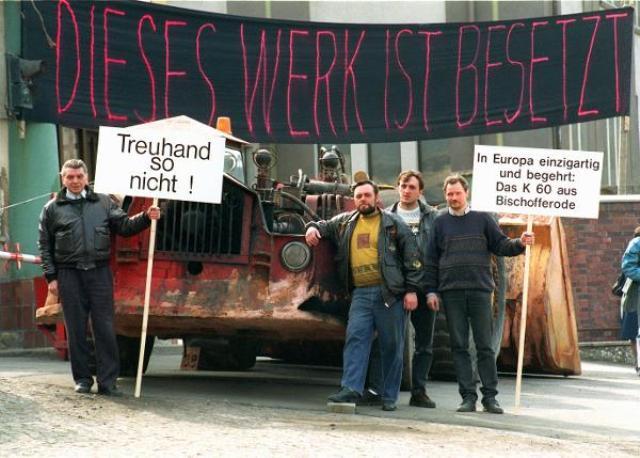Source

Source: picture-alliance / dpa (c) dpa-Bildarchiv
In December 1992, the Bundestag decided to close both of Thuringia’s potash mining sites, Bischofferode and Merkers, because their production was no longer needed. The Treuhandanstalt [Trusteeship Agency] favored a merger between the Mitteldeutsche Kali AG [Central German Potash Joint Stock Company], under which the East German mines were united, and the West German Kali + Salz AG [Potash + Salt Joint Stock Company]. The merger meant imminent layoffs. Therefore, 700 miners protested to urge the Trusteeship Agency to consider a new privatization concept. On April 7, 1993, miners occupied the Bischofferode plant to exert pressure on the agency; miners and sympathizers even went on a temporary hunger strike. In the end, the protests could not put a stop to the merger between Mitteldeutsche Kali AG and Kali + Salz AG, and the Bischofferode mine became part of the “Limited Liability Corporation for the Custody and Utilization of Closed Mining Plants” after being considered “unfit for renovation.”
Shown here: Potash miners block the factory gate with a big underground machine during the occupation of the mine on April 9, 1993. The banner reads: "This plant is occupied." The sign on the left reads: "Not like this, Trusteeship Agency!" the one on the right reads: "Unique in Europe and treasured: the K 60 from Bischofferode."

Source: picture-alliance / dpa (c) dpa-Bildarchiv